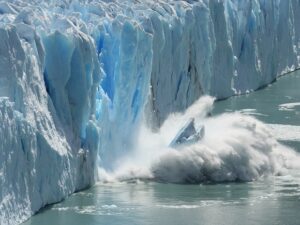 A groundbreaking new study has revealed that the Antarctic Ice Sheet Earth’s largest contributor to potential sea-level rise may be dangerously close to an irreversible tipping point, beyond which melting will continue even if global temperatures are stabilised or reduced.
A groundbreaking new study has revealed that the Antarctic Ice Sheet Earth’s largest contributor to potential sea-level rise may be dangerously close to an irreversible tipping point, beyond which melting will continue even if global temperatures are stabilised or reduced.
Scientists from Norway’s NORCE Research, the UK’s Northumbria University, and Germany’s Potsdam Institute for Climate Impact Research (PIK) have confirmed that the ice sheet is showing signs of “hysteresis” a phenomenon where a system continues on its path regardless of changes to the initial conditions. In this case, it means that the melting of Antarctica’s vast ice reserves could continue even without additional global warming.
Using sophisticated computer simulations known as Parallel Ice Sheet Model (PISM), the researchers analysed the behaviour of Antarctica’s ice during natural climate cycles over the last 800,000 years. Their findings suggest that even a 0.25°C increase in ocean temperatures or no further warming beyond current levels could eventually trigger a 4-metre sea-level rise from the West Antarctic Ice Sheet alone, once the system reaches its equilibrium melting state.
Equilibrium in this context refers to the final state of the ice sheet after it fully responds to today’s climate conditions a process that can take decades to centuries due to the slow nature of ice sheet dynamics. The alarming implication: humanity may already be in an “overshoot scenario,” where some degree of catastrophic ice loss is now unavoidable.
Unlike atmospheric warming, it is the gradual heating of oceans surrounding Antarctica that is largely driving the ice sheet’s transition into an interglacial, or melting, phase. Once the tipping point is crossed, scientists say there’s virtually no way to restore the ice sheet without maintaining global temperatures below pre-industrial levels for thousands of years an unfeasible scenario.
Still, the researchers stress that urgent climate action can slow or possibly halt the pace of irreversible melting. “It takes tens of thousands of years for an ice sheet to grow, but just decades to destabilise it by burning fossil fuels,” warned study co-author Julius Garbe from PIK. “Now we only have a narrow window to act.”
The findings underscore the critical importance of aggressive climate mitigation efforts. With coastal cities and global economies at risk, experts say immediate reductions in fossil fuel emissions, ocean warming controls, and international cooperation are more crucial than ever to prevent long-term planetary consequences.
